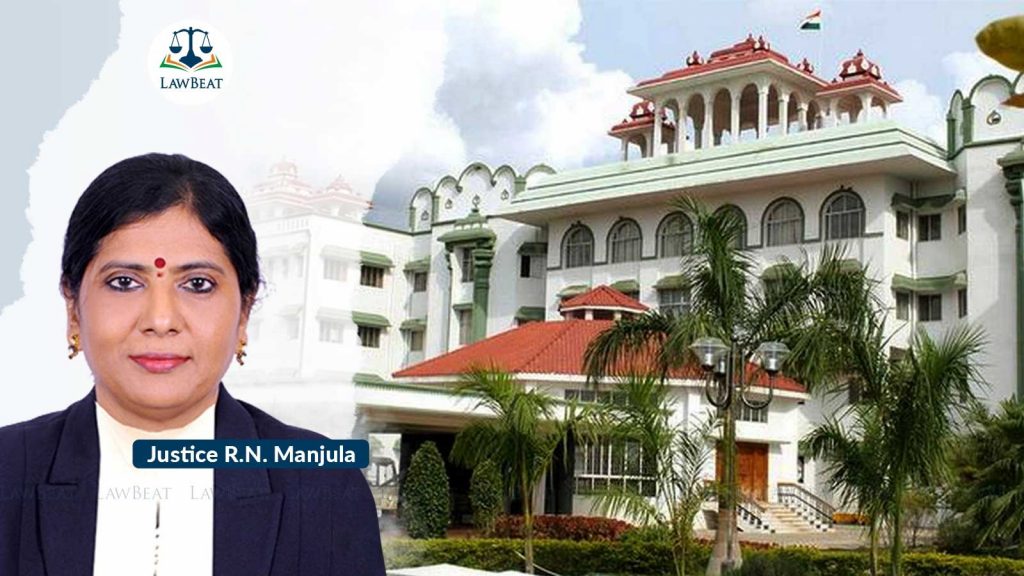![]()
The Madras High Court recently observed that the re-fixation of salary and consequential pensionary benefits post-retirement retrospectively is not in accordance with law.
The bench of Justice RN Manjula was dealing with a writ petition filed by a retired lab assistant of Madurai Kamaraj University. The petitioner had retired in 1988.
On March 5, 2023, the University passed an order reducing the petitioner’s pension on the basis that the petitioner’s scale of pay was wrongly fixed. The Local Fund Audit Department had raised an objection that the pay fixation of the petitioner was wrongly made in higher scale of pay.
The University had reduced the pension amount in December 2023 and passed the impugned order later.
Before passing the impugned order, the University had not issued any prior notice to the petitioner. Challenging the same, the petitioner moved the high court.
Justice Manjula noted that the issue in the present matter had already been dealt with by the high court in W.P. (MD)Nos.8537 to 8546 of 2024 wherein it was held that “it is the trite law that the Government Order cannot be superseded by any statutory provisions which are governing the service conditions of the employees…A person cannot be deprived of this pension without the authority of law, which is the constitutional mandate enshrined in Article 300-A of the Constitution”.
The judge said that in the present case, the petitioner was retired from service by superannuation and hence, the employer-employee relationship between the petitioner and the second respondent University had come to an end.
“…hence, the second respondent University holds no Authority to re-fix the salary and the consequential benefits of the petitioner,” held Justice Manjula.
Further, referring to the judgment in W.P.(MD)No.6635 of 2019 filed by the Administrative Staff Association of Manonmaniam Sundaranar University rep. by its General Secretary where it was held that “the job of the Local Fund Audit is to see if the expenditure incurred by the university is in consonance with the policy of the university and it is not for the Local Fund Audit to go into the justification of the promotions given by the university”, the single judge bench held that this judgment will also be applicable to the facts of the present case.
“As held in the above Judgment, only the Syndicate has the power to appoint the University staff and fix their emoluments,” court held.
Therefore, court quashed the impugned order and directed the University to reimburse the recovered amount to the petitioner with interest within a period of twelve weeks from the date of receipt of a copy of this order.
Case Title: R.Rajamani v. The State of Tamil Nadu
How useful was this post?
- Share review with rating here: Google Review
We are providing practical training (Labor Laws, Payroll, Salary Structure, PF-ESI Challan) and Labor Codes, Payroll Consultant Service & more:
- HR Generalist Practical Training + Certificate
- Labor Law + Payroll Practical Training + Certificate
- HR Analytics Practical Training + Certificate
- Labor Code, 2020 (Crash Course) + Certificate
- Advance Excel Practical Training + Certificate
- Disciplinary Proceeding & Domestic Enquiry – Practical Training + Certificate
- PoSH Act, 2013 (Sexual Harassment Of Women At Workplace & Vishaka Guidelines) – Practical Training + Certificate
- Compensation & Benefits – Practical Training + Certificate
- Industrial Relations – Practical Training + Certificate
- Labour Code (2019 & 2020) With Latest Updates | Labour Bill (Labour-Law-Practical-Training)
- PF – ESI Consultant Service
- Labor Law Consultant | Compliance Management | HR & Payroll Outsourcing
Get Latest HR, IR, Labor Law Updates, Case Studies & Regular Updates: (Join us on Social Media)
- Telegram Channel: The One Clik
- Whatsapp: https://wa.me/919033016939
- Facebook: The One Clik
- Linkedin: The One Clik
- Instagram: The One Clik
- YouTube: The One Clik
Disclaimer: All the information on this website/blog/post is published in good faith, fair use & for general informational purposes only and is not intended to constitute legal advice.

